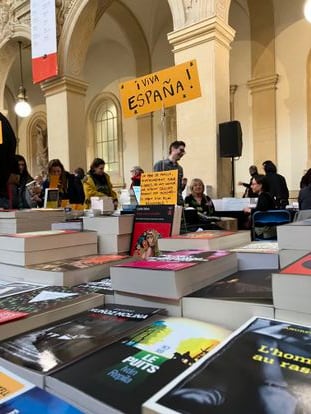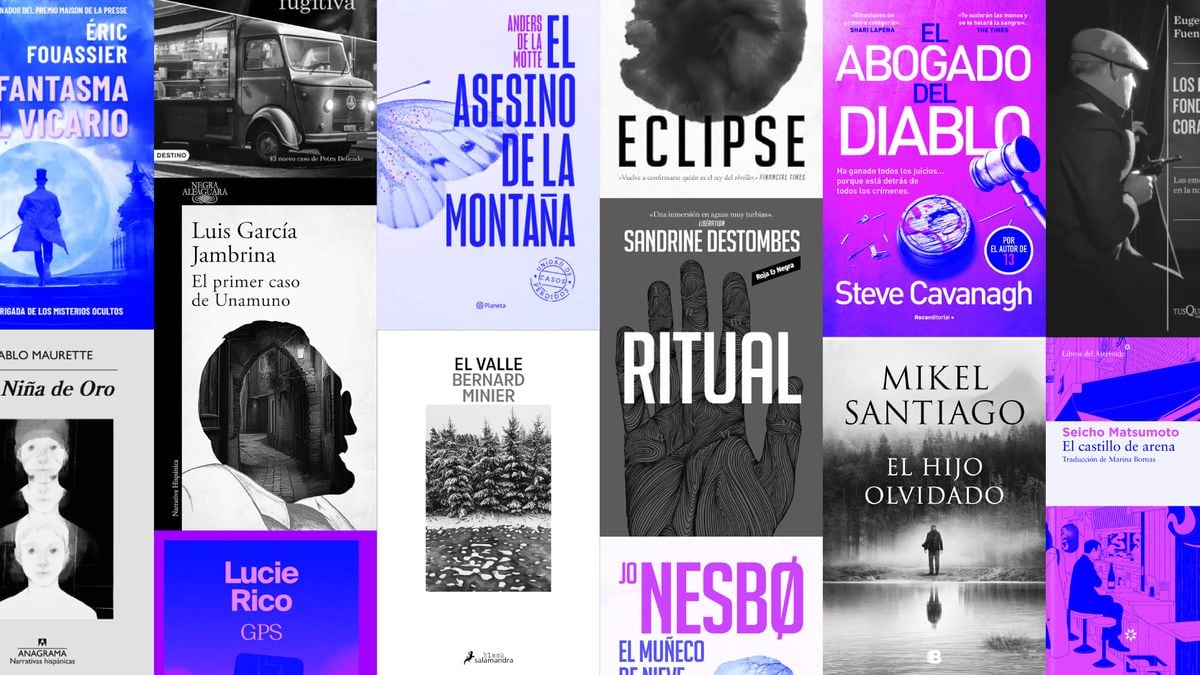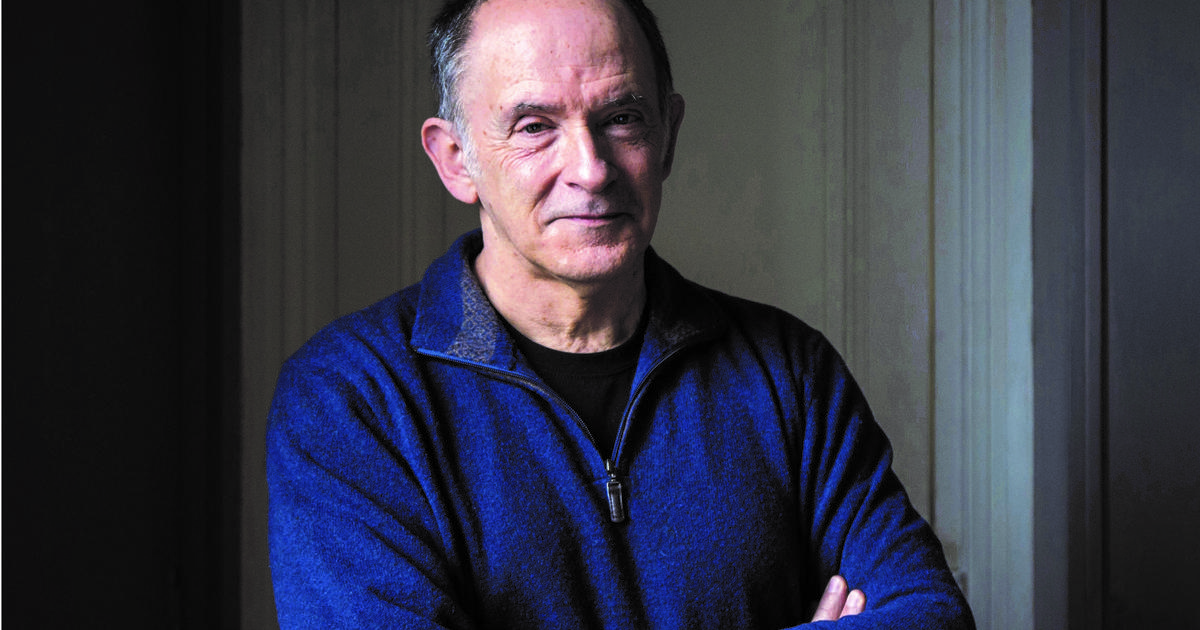Every year around this time since 2005 the very bourgeois city of Lyon is filled with criminal conspirators.
Authors, editors, agents, journalists and, above all, readers, come together at the Quais du Polar, the main crime novel festival in Europe.
In the streets, at presentations and among the public that crowds around the booksellers' tables, that special music of French is always heard, together with the omnipresent English and, this year, Spanish.
In Espagne, les conquistadors du polar à succès
(Spain, the conquerors of success), reads the cover of the weekly
Le Point
which can be picked up at the entrance to the Palais de la Bourse, the headquarters of a festival that this year has chosen Spain as the guest country.
It is a good moment to analyze the state of the genre and, above all, its possibilities of expansion abroad.
How does it look from France?
Is the Spanish
thriller
the new European trend?
Authors and experts from both countries respond.
“I think that at a receptive level the French public still finds it difficult to approach the foreign genre if it is not Anglo-Saxon, although things have changed a bit after the Nordic fashion.
Fortunately, there is a curious reader and that has allowed authors like Víctor del Árbol, Dolores Redondo or Juan Gómez-Jurado to be well received”, says Claire Duvivier, editor at Asphalte of authors such as Carlos Zanón or Jordi Ledesma, also invited to the Quais du Polar.
More information
Black novel in Spanish: everything you need to know about a genre in continuous expansion
Duvivier has not dropped three names at random.
Gómez-Jurado has sold more than two and a half million copies in Spain if we add his
Red Queen
trilogy and his latest book,
Everything Burns
, it is an unknown phenomenon that has opened the Spanish market to a greater number of readers of a literature of entertainment.
This is how the author explains the late explosion of the
thriller
in Spain: “We are a country with a kind of prevention against gender, which I suppose also has to do with the prevention that the average Spaniard has with our culture before anything that means having a good time.
It's curious.
We allow everything to comedy, for example, anything.
And yet, when we talk about a literary genre in which we deal with matters that are a little more relevant, more dense or more tricky, we have never allowed ourselves the possibility of having a good time”.
The dimension of this explosion is best seen with figures.
In Spain, the genre reached 22% of the market and two million novels sold last year, a percentage similar to that of France where, however, the volume of sales is higher, with a very mature and stable market that reached 18 million copies in 2022, according to figures from the GFK consultancy offered during the festival.
There is another difference: while in Spain the pocket format is in the minority, in France it accounts for more than 70% of sales, which accentuates the popular nature of crime fiction.
The path opened by Gómez-Jurado has been followed in different variants by Javier Castillo (who brings to France the translation of
La chica de la nieve
taking advantage of the push of Netflix) or writers who come from television such as Carmen Mola or Santiago Díaz, also present in Lyon.
“I see the genre in Spanish at the best moment in its history.
Unlike the series, which when they compare us with other countries we lose out due to a budget issue, in the novel we are on an equal footing.
We have nothing to envy, neither to the Americans, nor to the French, nor to anyone else”, says Díaz exultantly.
Del Árbol, for his part, is a very popular author in France, where he has won the two main prizes in the genre and has sold hundreds of thousands of copies.
A success that he has not been able to replicate to the same extent in Spain.
His editor, Alzira Martins, explains the phenomenon: “Víctor has had a brilliant success here, more than in his country, as happened for example with Paul Auster.
When I read
The Sadness of the Samurai
I didn't see it as a black novel and I acquired the rights for the literary collection.
But in 2012 our Actes Noirs collection was in such a good moment after the publication of two Scandinavian heavyweights like Stieg Larsson and Camilla Läckberg that we thought it was a wonderful opportunity for this crime novel.
We bet that this collection would give us a larger audience and the book did the rest.”
Communicating vessels, fashions that take advantage of the flow of other fashions, but is the genre in Spanish at such a good moment?
“I am tempted to say that it is in an excellent situation”, concludes the editor of Actes Sud, who names Aro Sainz de la Maza or Javier Cercas as examples of the health of the Spanish crime novel beyond the
thriller
.
The author of
Anatomy of an instant
summarizes his heterodox vision of the panorama for this newspaper after an hour signing books of the Terra Alta trilogy, with which he has entered the genre: “What has astonished me is the amount of prejudice there is.
That's why I'm telling you here, in the most important one in Europe, that maybe festivals aren't a good idea, because that's how authors are locked up in a ghetto.
Surprisingly, there are still people who believe that the detective genre is a minor genre.
Whoever believes this simply does not have the remotest idea, because in literature there are no major or minor genres, but good and bad literature;
everything else is verbiage.”
“In France many foreign authors are read and the reader is very open;
In the case of Spain, in addition, there are many connections between the two countries”, says Olivier Truc, optimistic, protagonist of one of these confluences through The
Unknown
(Alfaguara), a book written by four hands with Rosa Montero at the behest of the Quais du Polar to celebrate this fusion of cultures and traditions.
“It has been a magical process”, comments the Spanish author about the three and a half months of intense work, only possible thanks to a connection between two authors from different journeys, traditions and cultures that can be seen from the first minute of conversation with this newspaper. .
The result is a fast-paced, intense
thriller
in which neither sees specific French or Spanish traits.
Small tribute to Spanish literature in one of the bookstores of the Palais de la Bourse.JCG
All the actors consulted are clear about how unpredictable the market can be.
Catherine Passion, from the ACER agency, which has brought Lorenzo Silva or Teresa Cardona to France, warns against certain preconceived images: "Editors have more closed ideas of what readers want and I think they are more open than we think to different experiences".
Zanón, curator of BCNegra, a festival twinned with the Quais du Polar, is committed to opening the focus: “I am in favor of making it a diverse and eclectic scene.
It is one of the possible ways out so that we do not become a very predictable and small genre.
The more space is stained, the better.”
Risks and opportunities
In Lyon, a very broad vision of the genre has been shown for a long time.
That explains the presence, for example, of Guillermo Arriaga or María Dueñas.
In France, the novels by the author of
Time Between the Seams
(
L'espion de Tanger
in French) focus more from the point of view of espionage.
Optical question.
“The diversity of themes, settings and atmospheres that I usually deal with in my novels means that they can often be approached from very different angles.
In the case of
Sira
, my latest work translated into French, what interests the Quais du Polar is the espionage aspect, especially due to the fact that the protagonist is a woman", explains the author, who claims to be very comfortable in such a specialized festival.
This party that has given the genre in the epicenter of the European black novel is not without risks.
Zanón warns about the replicating effect of certain successes: "As the festival's curator, I believe that there are proposals, authors and readers and that everything continues to work and that's fine but I miss authors and proposals that broaden the market that take it to another place .
It seems like a boring moment."
Are we facing a bubble?
"Don't know.
It is very conjunctural and when it happens the last one to find out is you.
Time will tell”, responds Gómez-Jurado.
The readers now have the floor.
Subscribe to continue reading
Read without limits
Keep reading
I'm already a subscriber


/cloudfront-eu-central-1.images.arcpublishing.com/prisa/V22MUF36WRCMFMYVPT2JTWATUU.jpg)
/cloudfront-eu-central-1.images.arcpublishing.com/prisa/HZJYHXEJRJG4REXZG5VIWEJZ3Y.jpg)

/cloudfront-eu-central-1.images.arcpublishing.com/prisa/TIKVQMK7NBHH7LB7YLRXXLKQ4Q.jpg)

/cloudfront-eu-central-1.images.arcpublishing.com/prisa/WLGZFIKRWBBZ3BXLUZXEH72MEA.jpg)

/cloudfront-eu-central-1.images.arcpublishing.com/prisa/QWCYNE2RJBGKRHJNILUAQXC34Q.jpg)